-
 Bitcoin
Bitcoin $113900
-1.39% -
 Ethereum
Ethereum $3517
-4.15% -
 XRP
XRP $3.009
1.59% -
 Tether USDt
Tether USDt $0.9997
-0.04% -
 BNB
BNB $766.8
-1.41% -
 Solana
Solana $164.6
-2.38% -
 USDC
USDC $0.9998
-0.02% -
 TRON
TRON $0.3277
0.65% -
 Dogecoin
Dogecoin $0.2023
-1.67% -
 Cardano
Cardano $0.7246
0.05% -
 Hyperliquid
Hyperliquid $38.27
-4.77% -
 Sui
Sui $3.528
-0.52% -
 Stellar
Stellar $0.3890
-0.73% -
 Chainlink
Chainlink $16.16
-2.69% -
 Bitcoin Cash
Bitcoin Cash $539.9
-4.38% -
 Hedera
Hedera $0.2425
-2.00% -
 Avalanche
Avalanche $21.71
-0.97% -
 Toncoin
Toncoin $3.662
5.73% -
 Ethena USDe
Ethena USDe $1.000
-0.02% -
 UNUS SED LEO
UNUS SED LEO $8.964
0.35% -
 Litecoin
Litecoin $107.7
2.33% -
 Shiba Inu
Shiba Inu $0.00001223
-0.40% -
 Polkadot
Polkadot $3.617
-0.97% -
 Uniswap
Uniswap $9.052
-2.49% -
 Monero
Monero $295.1
-3.79% -
 Dai
Dai $0.9999
0.00% -
 Bitget Token
Bitget Token $4.315
-1.85% -
 Pepe
Pepe $0.00001060
0.11% -
 Cronos
Cronos $0.1342
-2.72% -
 Aave
Aave $256.0
-0.87%
How can Chinese investors purchase Bitcoin ETFs through mutual recognition of funds?
Chinese investors face significant regulatory hurdles in accessing Bitcoin ETFs, with no direct legal pathways available due to strict capital controls and crypto trading bans in China.
Mar 27, 2025 at 07:57 pm
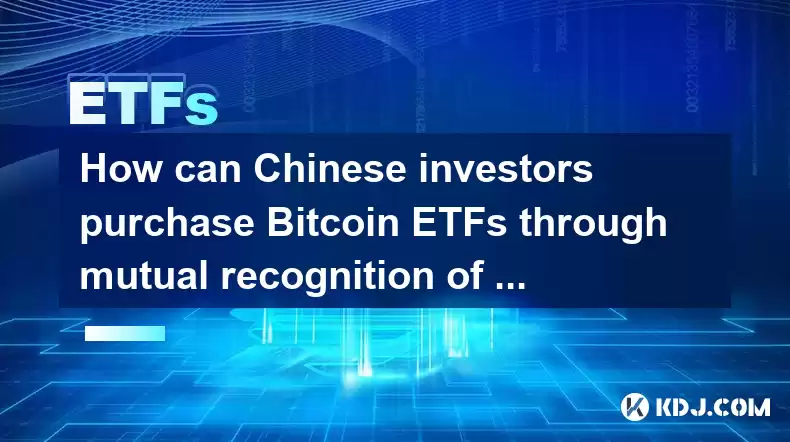
Understanding the Challenges and Potential Pathways
Chinese investors face significant hurdles in directly accessing Bitcoin ETFs due to regulatory restrictions within mainland China. The government maintains strict controls over capital flows and cryptocurrency trading. Therefore, the prospect of accessing Bitcoin ETFs through mutual fund recognition mechanisms requires a detailed examination of the existing regulatory frameworks and potential loopholes or future developments. Direct investment in Bitcoin or Bitcoin ETFs is currently not permitted.
Mutual Fund Recognition: A Complex Landscape
Mutual fund recognition, or cross-border fund recognition, involves agreements between countries to allow the sale of each other's mutual funds within their respective markets. This simplifies the process for international investors but doesn't automatically grant access to all asset classes. Even with mutual fund recognition agreements, the specific assets held within a fund must still comply with the receiving country's regulations. Currently, no such agreement explicitly facilitates access to Bitcoin ETFs for Chinese investors.
Analyzing Regulatory Hurdles in China
China's regulatory stance on cryptocurrencies is famously restrictive. The government has banned cryptocurrency exchanges and actively discourages cryptocurrency trading within the country. Any attempt to offer Bitcoin ETFs to Chinese investors would need to navigate these stringent rules. This means that any pathway to access would likely involve indirect methods or changes in existing regulations. The lack of clear legal frameworks around cryptocurrencies makes this a highly uncertain area.
Potential Indirect Pathways (Highly Speculative)
While direct access through mutual fund recognition is currently unlikely, some indirect pathways could theoretically emerge:
Hong Kong as a Gateway: Hong Kong has a more lenient regulatory environment compared to mainland China. If Hong Kong-listed Bitcoin ETFs were to gain traction, and if suitable mutual fund recognition agreements were established between Hong Kong and mainland China (which is currently not the case), this could offer a potential, albeit indirect, route. However, this remains highly speculative and depends on significant regulatory changes in both jurisdictions.
Offshore Investments (High Risk): Some Chinese investors might attempt to access Bitcoin ETFs through offshore investment vehicles. This carries significant risks, including legal and financial uncertainties, as well as potential violations of Chinese capital control regulations. Such methods are not recommended due to the considerable risks involved.
Future Regulatory Changes: The regulatory landscape is constantly evolving. A significant shift in China's stance towards cryptocurrencies, potentially driven by technological advancements or global trends, could lead to a more open approach to Bitcoin ETFs. However, predicting such changes is highly challenging.
Understanding the Role of ETFs
Exchange-Traded Funds (ETFs) are investment funds that trade on stock exchanges like stocks. They offer diversified exposure to a specific asset class, such as Bitcoin. While offering a degree of convenience and diversification, they are still subject to market volatility and regulatory oversight. The value of a Bitcoin ETF fluctuates directly with the price of Bitcoin. Understanding the inherent risks associated with Bitcoin investment is crucial before considering any ETFs.
Navigating the complexities of International Regulations
International regulations play a crucial role. Even if a mutual fund recognition agreement existed, the regulatory bodies in both countries would need to agree on the permissible assets within the fund. This would require a clear legal framework for cryptocurrencies within both jurisdictions. The lack of such a framework is a primary barrier to accessing Bitcoin ETFs via mutual fund recognition.
The Significance of Capital Controls
China's strict capital controls are designed to manage the flow of money in and out of the country. These controls are a significant obstacle to any strategy aiming to provide Chinese investors with access to foreign assets, including Bitcoin ETFs. Circumventing these controls carries considerable legal and financial risks. Any attempt to do so must be carefully considered with the potential penalties in mind.
The Future of Bitcoin ETFs and Chinese Investors
The future of Bitcoin ETF accessibility for Chinese investors remains uncertain. While mutual fund recognition offers a potential avenue, it is currently hampered by the significant regulatory differences and restrictions surrounding cryptocurrencies in China. The possibility of indirect access through Hong Kong or other offshore jurisdictions exists, but these options come with considerable risks. Significant regulatory changes would be needed to create a more straightforward and secure path for Chinese investors to access Bitcoin ETFs.
Frequently Asked Questions
Q: Are there any legal ways for Chinese citizens to invest in Bitcoin ETFs currently?
A: No, there are currently no legal ways for Chinese citizens to directly invest in Bitcoin ETFs due to China's regulatory restrictions on cryptocurrencies.
Q: Could mutual fund recognition agreements change this situation?
A: Potentially, but only if significant regulatory changes occur in China to allow for Bitcoin ETFs and if a suitable mutual fund recognition agreement is established that specifically includes this asset class. This is currently highly unlikely.
Q: What are the risks of using unofficial methods to access Bitcoin ETFs?
A: The risks are substantial and include legal penalties in China for violating capital controls and financial risks associated with unregulated investment vehicles. These methods are strongly discouraged.
Q: What is the likelihood of China changing its regulatory stance on cryptocurrencies?
A: Predicting future regulatory changes is difficult. While some degree of liberalization is possible, it's uncertain when or to what extent this might happen.
Q: What are the benefits of investing in Bitcoin ETFs compared to directly buying Bitcoin?
A: Bitcoin ETFs offer diversification within a regulated framework, providing a potentially less risky approach compared to directly holding Bitcoin. However, they still carry market risks associated with Bitcoin's price volatility.
Disclaimer:info@kdj.com
The information provided is not trading advice. kdj.com does not assume any responsibility for any investments made based on the information provided in this article. Cryptocurrencies are highly volatile and it is highly recommended that you invest with caution after thorough research!
If you believe that the content used on this website infringes your copyright, please contact us immediately (info@kdj.com) and we will delete it promptly.
- Bitcoin Strategy: Saylor's Not Hoarding, He's Building an Empire
- 2025-08-02 22:30:12
- Bitcoin Bloodbath: Macro Pressures and Liquidations Unleash Crypto Chaos
- 2025-08-02 22:30:12
- Tron, Cold Wallets, and Crypto Trends: What's Hot in the Market?
- 2025-08-02 23:10:12
- Bitcoin's Wild Ride: Davinci, Investors, and the $500K Dream
- 2025-08-02 23:50:12
- Worldcoin, Identity, WLD Price: Decoding the NYC Crypto Buzz
- 2025-08-02 21:10:12
- Shiba Inu: Utility and Community Strength Drive Crypto's Evolution
- 2025-08-02 21:50:12
Related knowledge
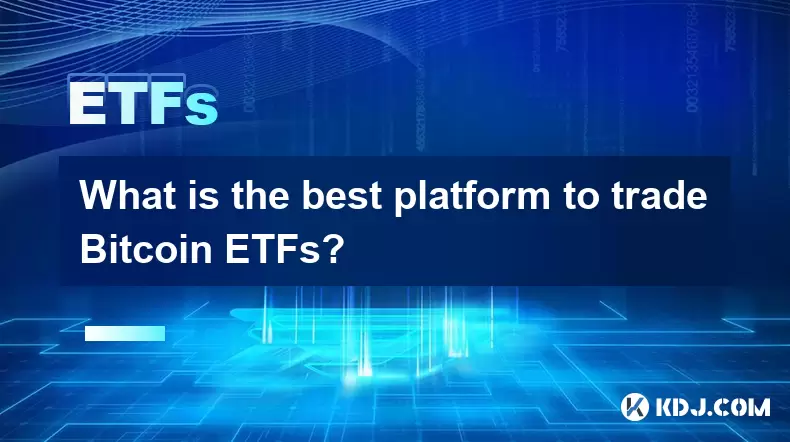
What is the best platform to trade Bitcoin ETFs?
Jul 23,2025 at 04:14am
Understanding Bitcoin ETFs and Their Role in TradingBitcoin Exchange-Traded Funds (ETFs) have gained significant traction among traditional and crypto...
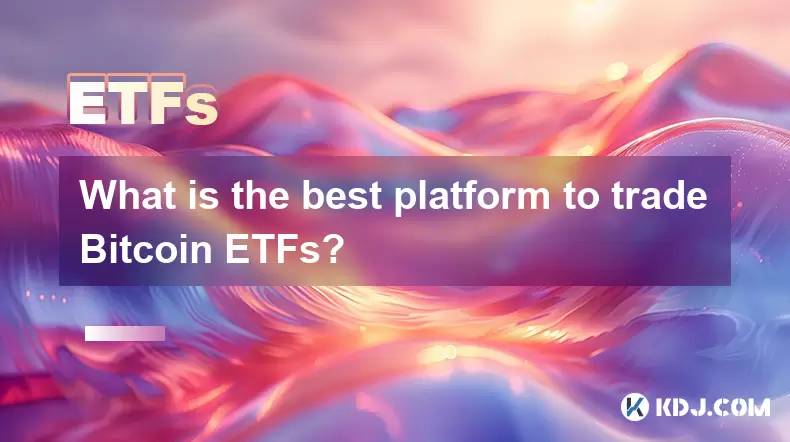
What is the best platform to trade Bitcoin ETFs?
Jul 17,2025 at 03:50pm
Understanding Bitcoin ETFs and Their Role in the MarketBitcoin Exchange-Traded Funds (ETFs) are investment vehicles that track the price of Bitcoin wi...
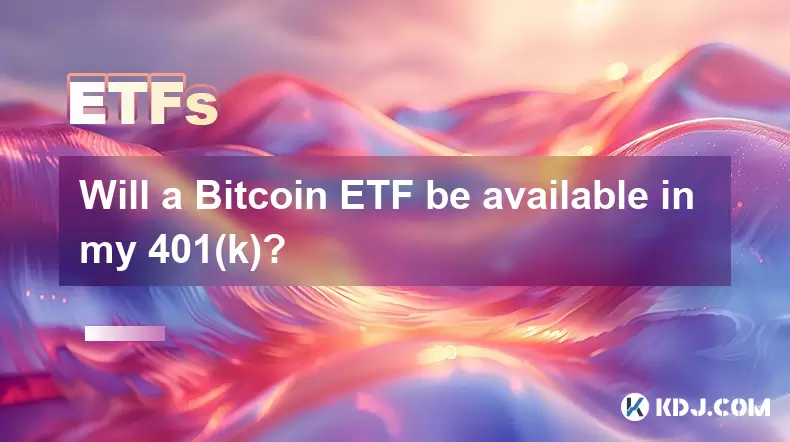
Will a Bitcoin ETF be available in my 401(k)?
Jul 17,2025 at 10:42pm
What is a Bitcoin ETF?A Bitcoin ETF (Exchange-Traded Fund) is an investment vehicle that tracks the price of Bitcoin without requiring investors to di...
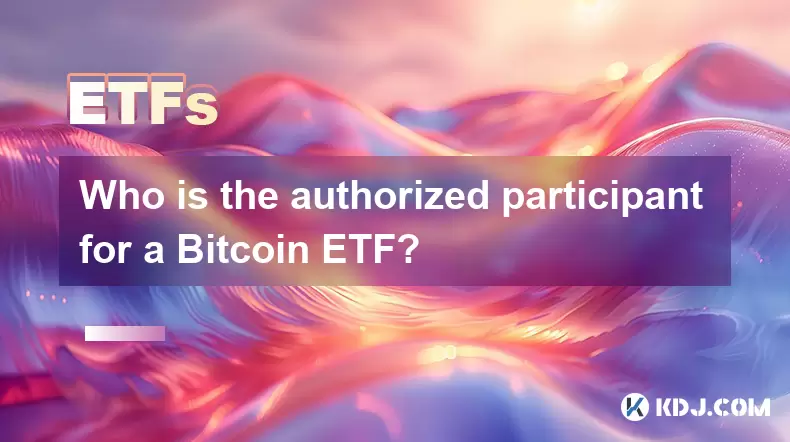
Who is the authorized participant for a Bitcoin ETF?
Jul 18,2025 at 12:42am
Understanding the Role of Authorized Participants in Bitcoin ETFsIn the context of Bitcoin Exchange-Traded Funds (ETFs), an authorized participant (AP...
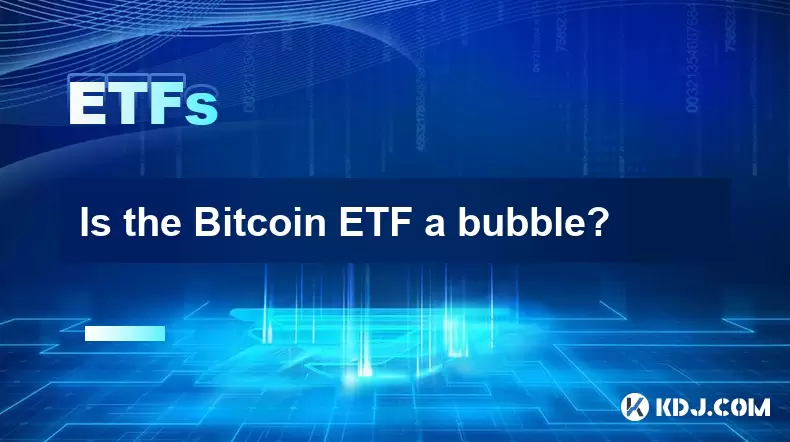
Is the Bitcoin ETF a bubble?
Jul 20,2025 at 06:57am
Understanding the Bitcoin ETF ConceptA Bitcoin Exchange-Traded Fund (ETF) is a financial product that aims to track the price of Bitcoin without requi...
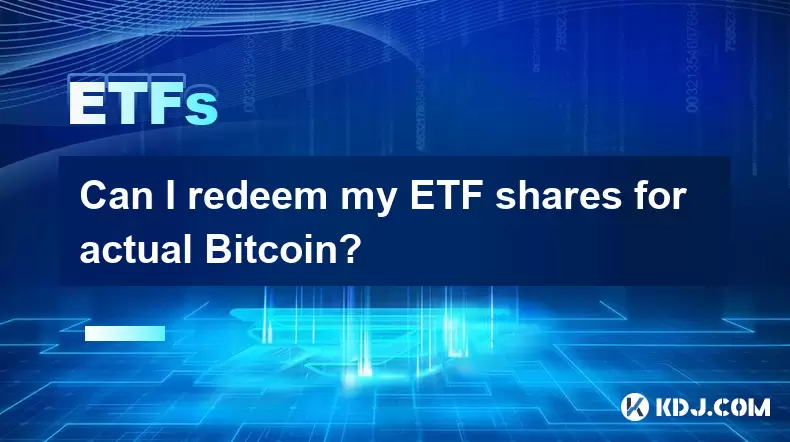
Can I redeem my ETF shares for actual Bitcoin?
Jul 17,2025 at 03:14pm
Understanding ETF Shares and Their Relation to BitcoinExchange-Traded Funds (ETFs) have become a popular investment vehicle for those looking to gain ...

What is the best platform to trade Bitcoin ETFs?
Jul 23,2025 at 04:14am
Understanding Bitcoin ETFs and Their Role in TradingBitcoin Exchange-Traded Funds (ETFs) have gained significant traction among traditional and crypto...

What is the best platform to trade Bitcoin ETFs?
Jul 17,2025 at 03:50pm
Understanding Bitcoin ETFs and Their Role in the MarketBitcoin Exchange-Traded Funds (ETFs) are investment vehicles that track the price of Bitcoin wi...

Will a Bitcoin ETF be available in my 401(k)?
Jul 17,2025 at 10:42pm
What is a Bitcoin ETF?A Bitcoin ETF (Exchange-Traded Fund) is an investment vehicle that tracks the price of Bitcoin without requiring investors to di...

Who is the authorized participant for a Bitcoin ETF?
Jul 18,2025 at 12:42am
Understanding the Role of Authorized Participants in Bitcoin ETFsIn the context of Bitcoin Exchange-Traded Funds (ETFs), an authorized participant (AP...

Is the Bitcoin ETF a bubble?
Jul 20,2025 at 06:57am
Understanding the Bitcoin ETF ConceptA Bitcoin Exchange-Traded Fund (ETF) is a financial product that aims to track the price of Bitcoin without requi...

Can I redeem my ETF shares for actual Bitcoin?
Jul 17,2025 at 03:14pm
Understanding ETF Shares and Their Relation to BitcoinExchange-Traded Funds (ETFs) have become a popular investment vehicle for those looking to gain ...
See all articles

























































































